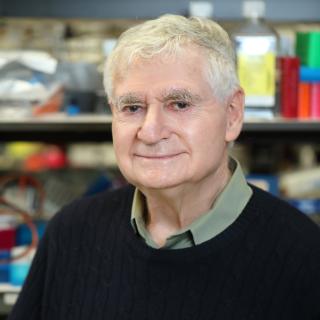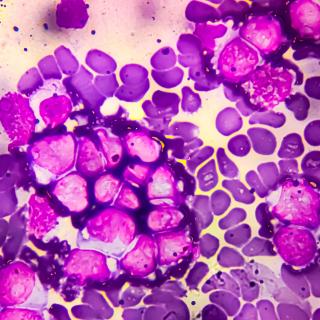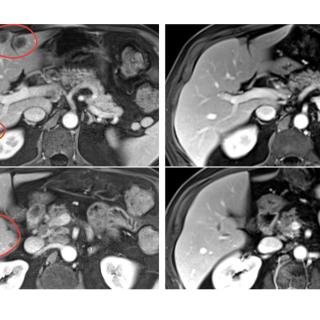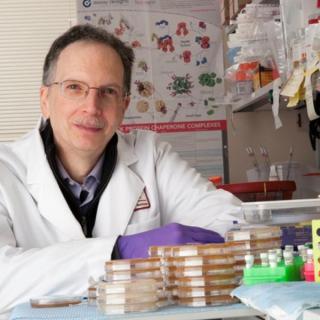News and Events
Celebrating CCR Careers: Steven Z. Pavletic, M.D., Ph.D.
Steven Z. Pavletic, M.D., Ph.D., is a renowned expert in chronic graft-versus-host disease, a serious late complication that can happen after allogeneic bone marrow transplants. After serving at the NCI for over 20 years, he is now announcing his retirement.
Read MoreT-cell receptors can help CAR T cells steer clear of healthy tissue while they attack tumors
Adding a specific T-cell receptor to CAR T cells may reduce side effects of immunotherapies designed to target solid tumors.
Read MoreStudy uncovers mechanism behind effectiveness of three-drug combination in patients with a rare bile duct cancer
Combining anti-VEGF therapy with immune checkpoint inhibitors stimulated the production of B cells to fight cholangiocarcinoma, a rare bile duct cancer.
Read MoreCelebrating CCR Careers: Ira Pastan, M.D.
Ira Pastan, M.D., who pioneered receptor biology in animal cells and mentored several generations of scientists, announces his retirement from the NCI.
Read MoreCondition of patients’ immune cells can affect how they respond to immunotherapy
Researchers found that T cells in patients whose cancers did not respond to CD22 CAR T-cell therapy showed markers of cellular exhaustion and were in a later stage of development.
Read MoreS. Cenk Sahinalp elected to 2025 class of ISCB Fellows
S. Cenk Sahinalp, Ph.D., Senior Investigator in the Cancer Data Science Laboratory, was elected to the 2025 class of International Society for Computational Biology (ISCB) Fellows. The program recognizes individuals who have played a pivotal role in advancing bioinformatics and computational biology. Sahinalp is being honored for his work as a leader in algorithmic methods for cancer genomics, structural variation and tumor evolution.
Read MoreCombination immunotherapy shrank a variety of metastatic solid cancers
Results of a clinical trial led by Steven A. Rosenberg, M.D., Chief and Senior Investigator in the Surgery Branch, showed that a new form of tumor infiltrating lymphocyte (TIL) therapy dramatically improved the treatment’s effectiveness in patients with metastatic gastrointestinal cancers. The findings, published April 1, 2025, in Nature Medicine, offer hope that this personalized immunotherapy regime could be used to treat a variety of solid tumors, which has so far eluded researchers developing cell-based therapies.
Read MoreCelebrating CCR Careers: Len Neckers, Ph.D.
For over 40 years, Len Neckers, Ph.D., worked to develop molecularly targeted therapeutic approaches to modulate cancer cell growth and survival. He retired from CCR in November 2024.
Read MoreCCR researchers nominated to 2024 class of AAAS Fellows
Sheue-yann Cheng, Ph.D., Senior Investigator in the Laboratory of Molecular Biology, Anish Thomas, MBBS, M.D., Senior Investigator in the Developmental Therapeutics Branch, and Xin Wei Wang, Ph.D., Acting Co-Chief and Senior Investigator in the Laboratory of Human Carcinogenesis, were elected as 2024 Fellows to the American Association for the Advancement of Science (AAAS). Since 1874, the AAAS has elected scientists, engineers and innovators as Fellows for their achievements across many disciplines. Election as a Fellow honors members whose efforts on behalf of the advancement of science or its applications in service to society have distinguished them among their peers and colleagues.
Read MoreClinical trial researching drug therapy for neuroendocrine tumors
A clinical trial led by Frank I. Lin, M.D., Lasker Clinical Research Scholar in the Molecular Imaging Branch, is researching a drug therapy for adults with gastrointestinal neuroendocrine tumors and pheochromocytoma/paragangliomas.
Read MoreClinical trial researching immunotherapy for metastatic cancers
A clinical trial led by James L. Gulley., M.D., Ph.D., Co-Director and Senior Investigator in the Center for Immuno-Oncology, is researching immunotherapy for adults with locally advanced or metastatic cancers.
Read More








